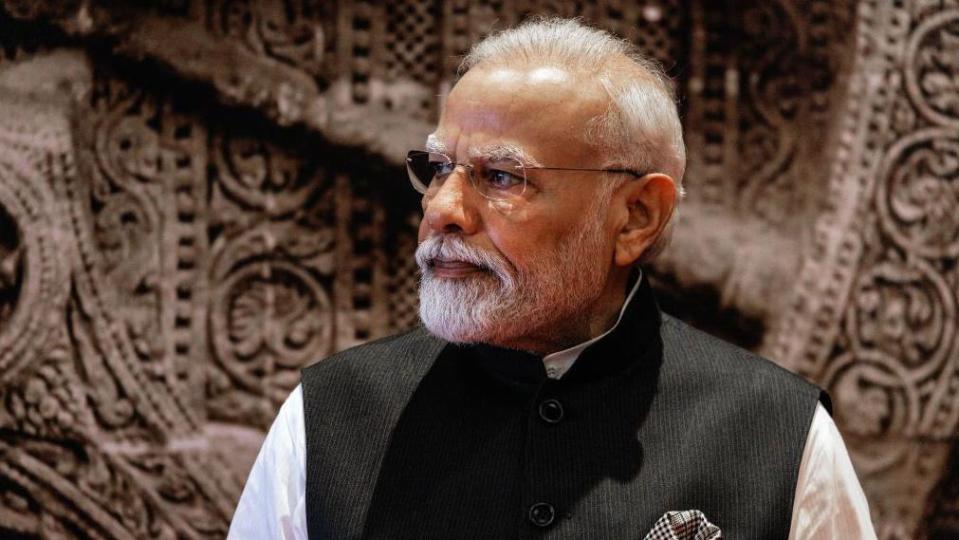India stocks see biggest fall for over four years

Indian stocks have fallen sharply after vote counting in the country's general election indicated Prime Minister Narendra Modi's party might not be able to form a majority government.
The benchmark NSE Nifty 50 share index closed down nearly 6%, its steepest fall since India's first Covid lockdowns in March 2020.
Early results suggest Mr Modi's political party may need to rely on allies and form a coalition government.
That could lead to uncertainty over economic policies, some analysts said.
The NSE Nifty 50, which comprises stocks in various big companies, had plunged 8.5% at one point but ended the day down 5.9% at 21,884.5 points.
The S&P BSE Sensex also fell sharply, closing 5.7% lower at 72,079.05.
The rupee slid 0.5% against the US dollar, its biggest fall in 16 months.
More than half the votes have been counted in India's general election, and Mr Modi's Bharatiya Janata Party (BJP) looks unlikely to secure a majority in the 543-member lower house of parliament.
It may have to rely on allies in the National Democratic Alliance (NDA) to form the next government.
Analysts suggest that could lead to some uncertainty over economic policies, such as a push for investment, which has been one of the mainstays of the Modi government's rule.
"The key question is whether BJP can retain single-party majority," Ken Peng, head of investment strategy, Asia, at Citi Global Wealth, told Reuters.
"If not, then would its coalition be able to deliver economic development, particularly infrastructure?"
Puneet Sharma, chief executive and fund manager at Whitespace Alpha, told Reuters that if the new government is dependent on coalition partners it "may shift its focus" to put more emphasis on welfare "rather than concentrating on reforms during the July budget".
The Hindu nationalist BJP won majorities in 2014 and 2019.
Markets had soared on Monday after exit polls over the weekend had suggested Mr Modi and the BJP would gain a significant victory.
But it now looks as though the BJP will fall short of achieving a majority by itself.
Market analyst Fiona Cincotta told the BBC key Indian stock indexes had been "really battered".
She added that there had been some "very big fallers" in individual stocks, including oil and gas firm Reliance Industries, and Bank of India.

 Yahoo Finance
Yahoo Finance 